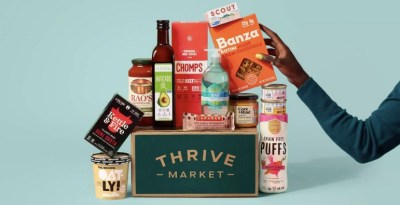By Megan Sayles,
AFRO Business Writer,
msayles@afro.com
The “food desert” label has seen an uptick in usage, as low-income communities across the country continue to lose access to fresh fruits and vegetables and full-service grocery stores within a ten mile radius.
The U.S. Department of Agriculture (USDA) estimates that 13.5 million U.S. residents are current victims of the food desert problem, spread across 65,000 census tracts.
To offset that statistic, here’s a look at some organizations across the Baltimore-Washington metropolitan area that are trying to combat food deserts.

Maryland native Mario Minor and his business partner, Lenny Knight, developed the concept for this full-service grocery store in 2016. Market Fresh Gourmet’s mission is to open locations in food desert communities and provide fresh, healthy food options while also providing employment opportunities to residents in local communities.
The first store opened in Capitol Heights, Md., where Minor was raised. The second serves the Poppleton neighborhood in Central Southwest Baltimore.

The Food For Thought Foundation, Inc.
Founded in 2020, this D.C. nonprofit offers people living in food deserts fresh, affordable produce. The Food For Thought Foundation, Inc. works in communities with full-service grocery stores and redistributes fruits and vegetables to neighborhoods in food deserts for free. In the past, the organization has hosted food drives, manned stands at local farmers markets and rolled out a cook-along series to educate people about healthy eating. Officials from the Food For Thought Foundation say they are eager to work with interns and volunteers.

The D.C. Central Kitchen believes hunger is a symptom of poverty, and access to food has the ability to better people’s lives. The social enterprise was founded in 1989 by nightclub manager Robert Egger. In its early years, Egger would collect wasted food and transform it into healthy, balanced meals to give away to nonprofits and shelters. Today, the organization provides farm-to-school meals in D.C. public schools, delivers affordable produce to corner stores in communities without grocery stores and trains individuals to obtain living-wage jobs in the culinary arts.

This online, membership-based market was created in 2014 by founders, Nick Green, Gunnar Lovelace, Kate Mulling and Sasha Siddhartha. Thrive Market aims to provide affordable access to sustainable and organic food products. When an annual membership is purchased with Thrive Market, a free membership is sponsored for a family in financial need. As consumers rack up savings on Thrive Market, they can choose to donate the dollars to support initiatives, including grocery discounts and stipends for low-income families. Food and product donations also go to victims of natural disasters. Thrive Market’s goal is to provide $10 million in healthy groceries to families in need.

A Pan-African think tank and collective action network, the Black Yield Institute works to address the food apartheid, which, unlike a food desert, encapsulates systematic racism’s influence on food access and control. The organization was established in 2015 and seeks to achieve what they call food sovereignty. Some of Black Yield Institute’s programming includes developing sustainable models of food production and land stewardship to provide residents with access to healthy and culturally-appropriate food and educating individuals on food sovereignty with workshops and a 15-week leadership development course. It also runs a food co-op in the Cherry Hill neighborhood of Baltimore.
Megan Sayles is a Report for America corps member.



